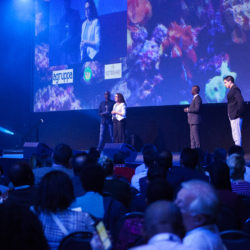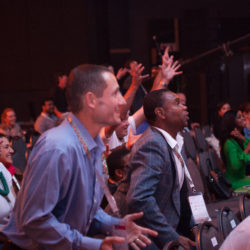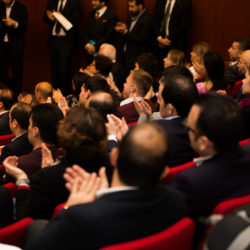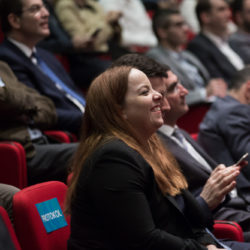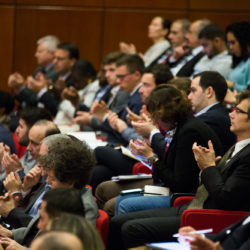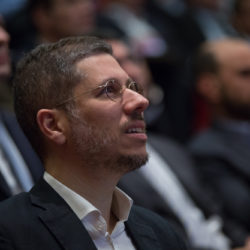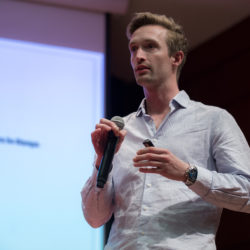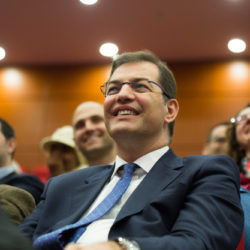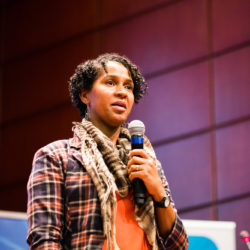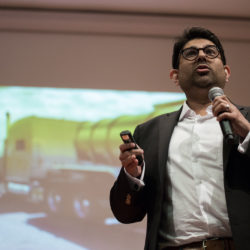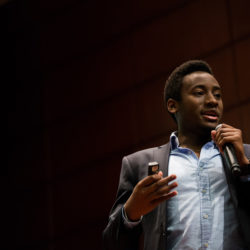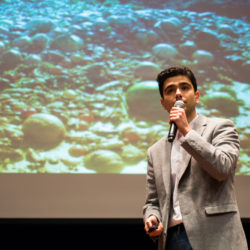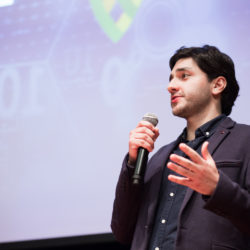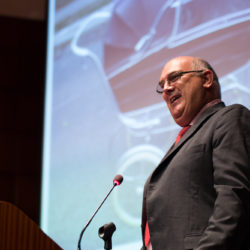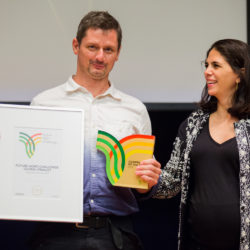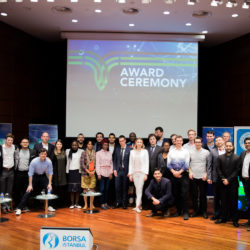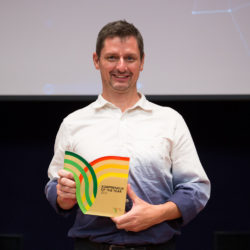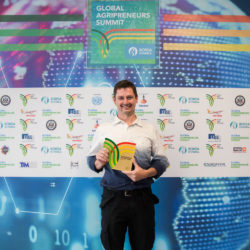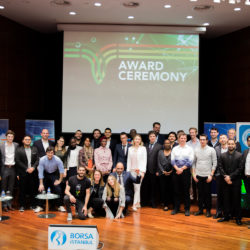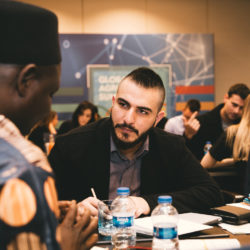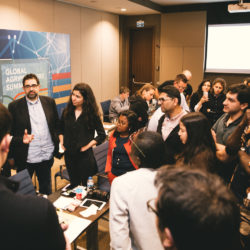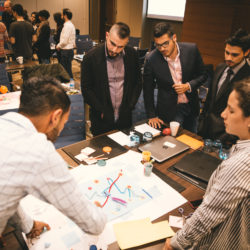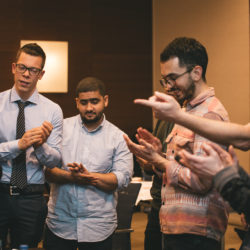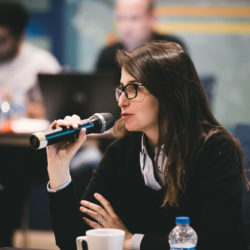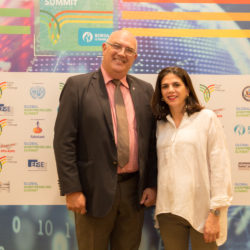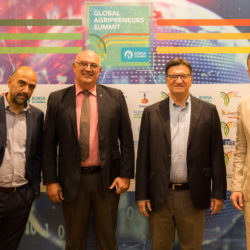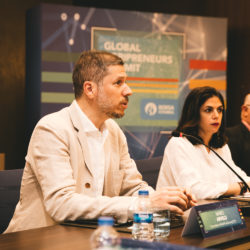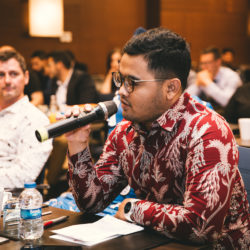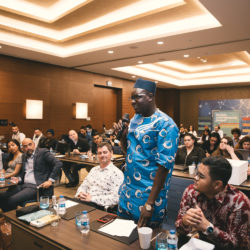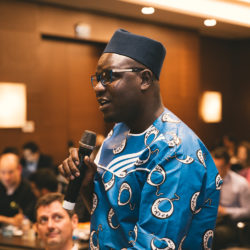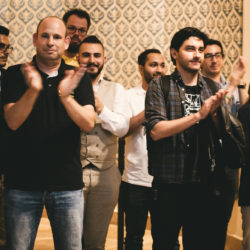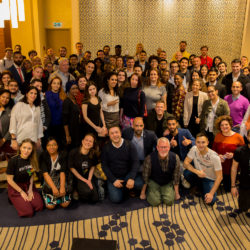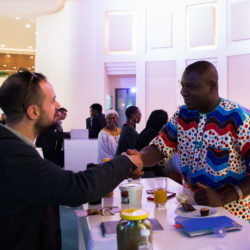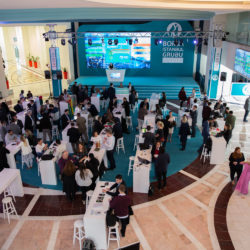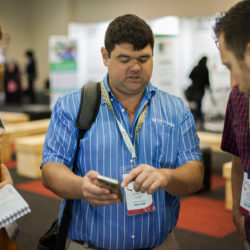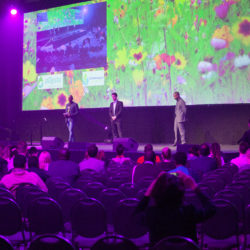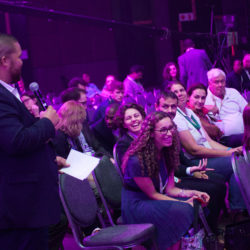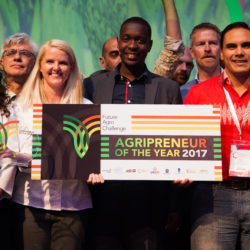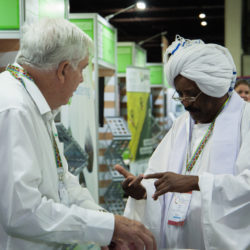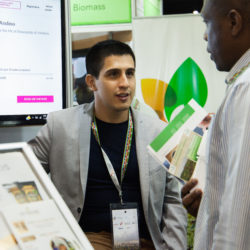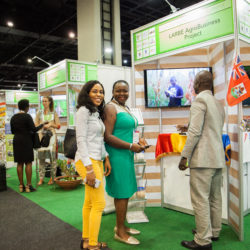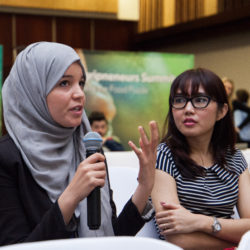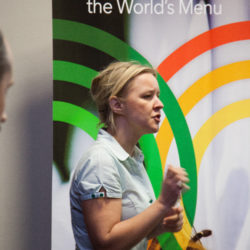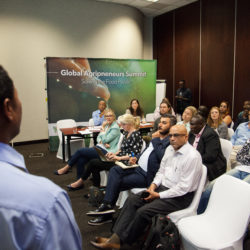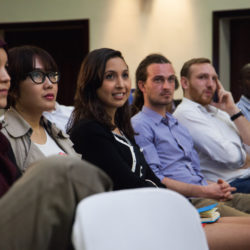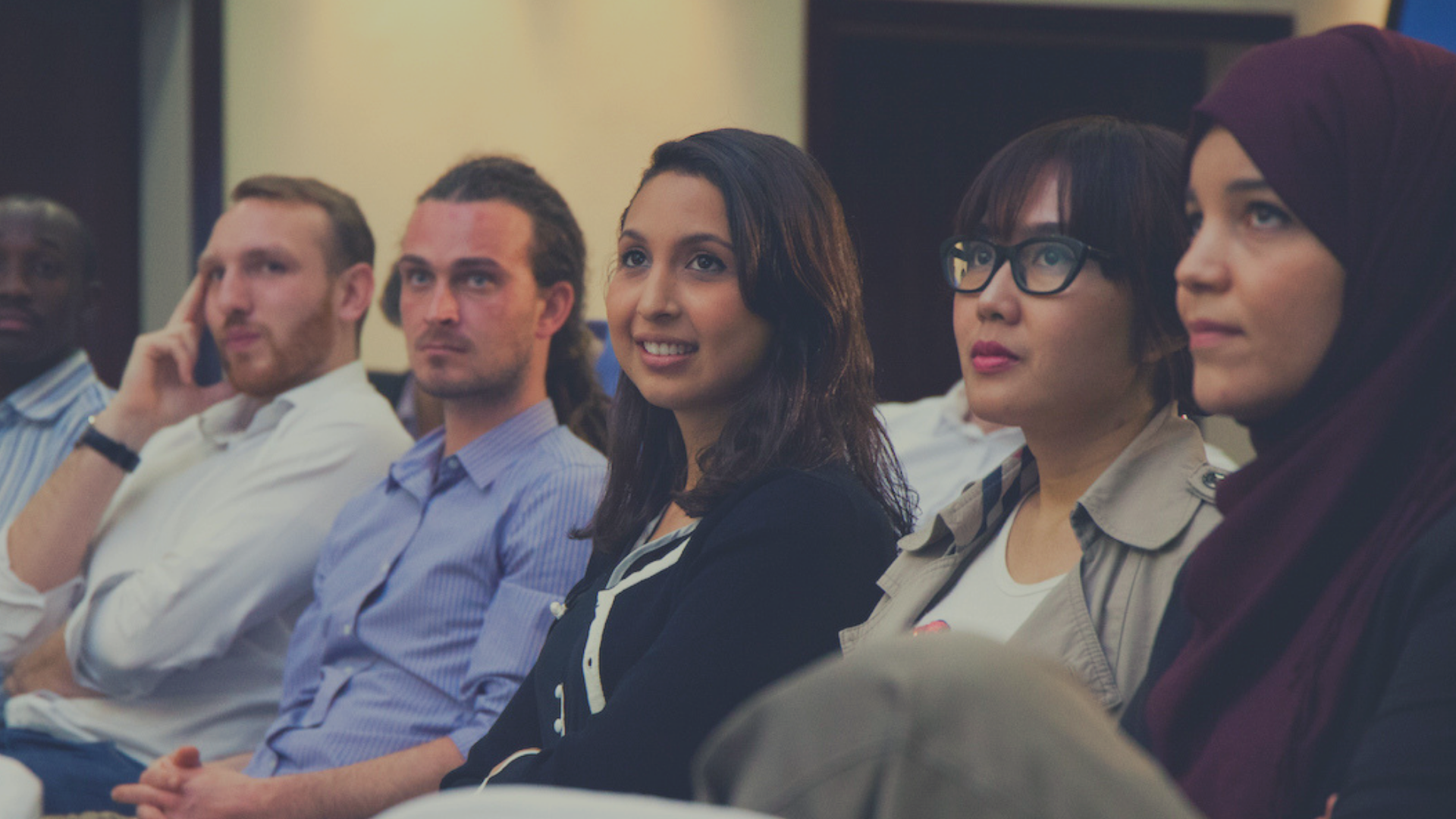
GLOBAL AGRIPRENEURS SUMMIT
September 7 - 11, 2019
Thessaloniki, Greece

What is the Global Agripreneurs Summit and Why Should I Participate?
The Global Agripreneurs Summit is an assembly of agrifood innovators and leaders from around the world – where farmers, agripreneurs, chefs, investors, organisations, policy makers, and other tho...
What is the Global Agripreneurs Summit and Why Should I Participate?
The Global Agripreneurs Summit is an assembly of agrifood innovators and leaders from around the world – where farmers, agripreneurs, chefs, investors, organisations, policy makers, and other thought leaders work together to help bring life to game changing innovations, and propel agriculture as a sustainable source of growth and economic development. Every year, the Summit travels to a new destination, from Colombia 2016, to South Africa 2017, to Turkey 2018, and now in Greece 2019, to energize the traditional agrifood industry into an innovative space.
The 4th Global Agripreneurs Summit will take place in Thessaloniki, Greece on September 7-11, 2019 within the context of the Thessaloniki International Fair, the most important exhibition event in Greece with more than 263,000 visitors and inaugurated every year by the Prime Minister.
The Summit will host the renowned FAC Global Championships: the Olympics of Agripreneurship showcasing cutting-edge solutions from around the world to award the Agripreneur of the Year. It will be proceeded by targeted workshops and trainings. The global stage will present influencers and controversial voices from the field of sustainability, food security, production and traceability to engage in intellectual pursuits. B2B meetings will encourage farmers, startups, industry experts and stakeholders to participate in new synergies and cross border opportunities. While policy roundtables will accelerate the global dialogue between policy makers and innovators.
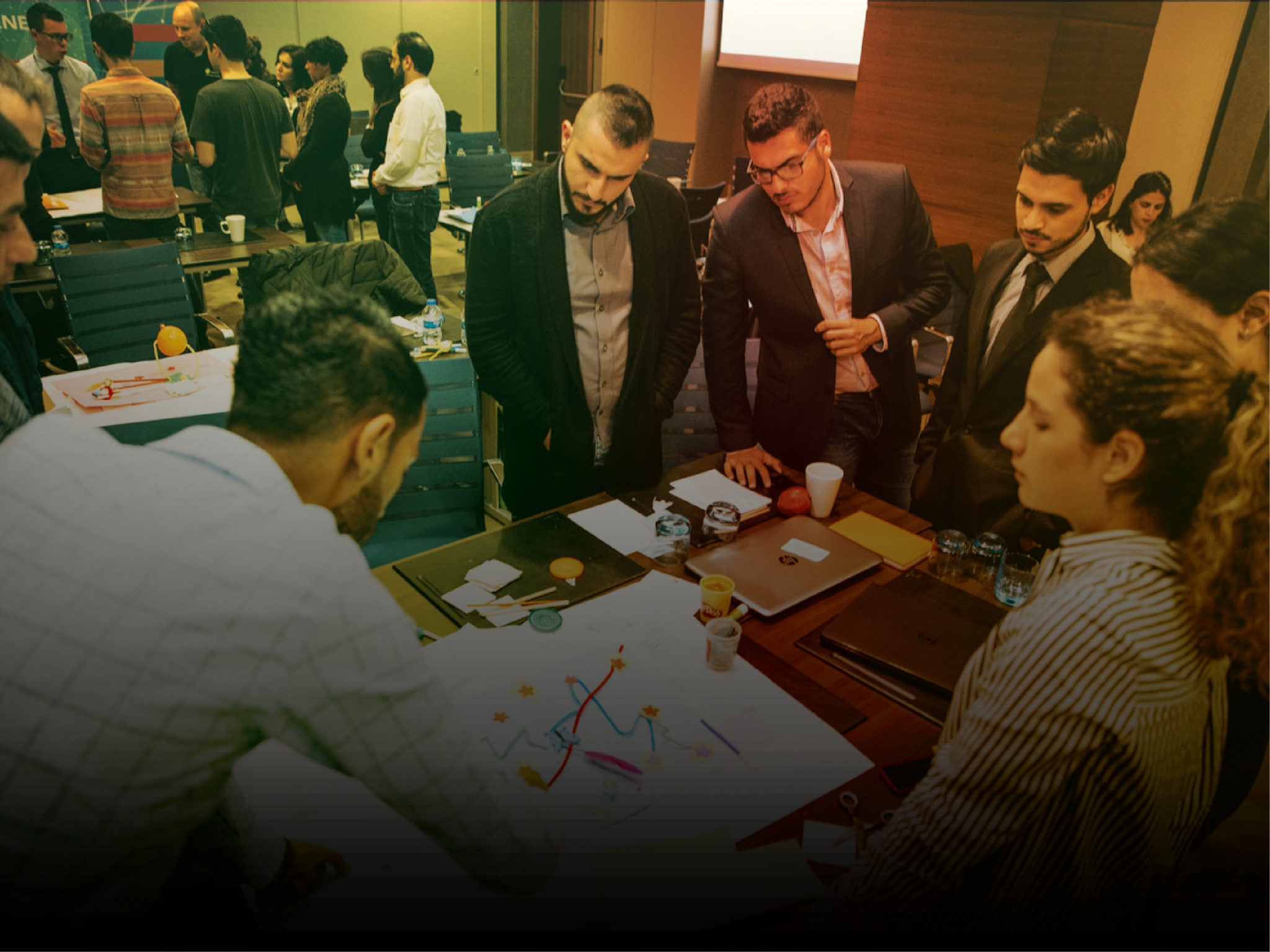
A Global Dialogue Envisioning the Future Farmer 4.0
This year, the 4th Global Agripreneurs Summit has centered its theme as "Defining the Future Farmer 4.0". Envisioning how technology will transform the farmer, food, and nutrition. What w...
A Global Dialogue Envisioning the Future Farmer 4.0
This year, the 4th Global Agripreneurs Summit has centered its theme as "Defining the Future Farmer 4.0". Envisioning how technology will transform the farmer, food, and nutrition. What will the current role of the farmer become? What changes will this create in the food industry? How will we address nutrition in this new dialogue? What new models will the food logistics industry absorb? What skills will be needed for the future farmer? How can traditional farmers prepare for agriculture 4.0? Should robots substitute current farmer roles or do farmers play a substantial role beyond what robots are able to offer us? This year we will embark on a better understanding of the future farmer.
Speakers
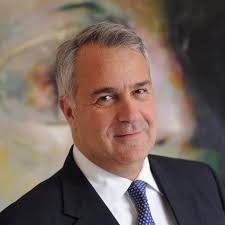
Mavroudis Voridis
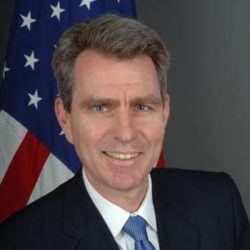
Geoffrey Pyatt

Angeliki Kosmopoulou
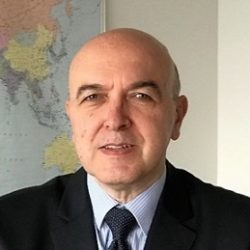
Konstantinos Fragkogiannis
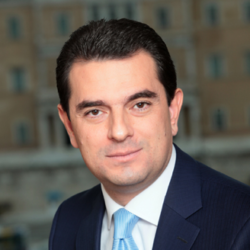
Konstantinos Skrekas

Judith Munyurwa
Business title: COO
Organization: Databank Agrifund Manager
schedule
-
10:00 AMRegistration
-
11:00 AMOfficial OpeningMavroudis Voridis, Minister of Rural Development and Food of the Hellenic Republic Geoffrey Pyatt, U.S. Ambassador to the Hellenic Republic Carla Tanas, Co-Founder of ID-GC, Future Agro Challenge Firechat: Mavroudis Voridis, Minister of Rural Development and Food of the Hellenic Republic Petros Efthymiou, former President of the Parliamentary Assembly of OSCE (Organisation for Security and Cooperation in Europe).
-
12:00 PMThe Case for a Stronger Common Agricultural Policy for Climate Action
- Konstantinos Skrekas, Deputy Minister of Rural Development and Foodstuff
- Konstantinos-Evaggelos Aravosis, General Secretary of Natural Environment and Water, Ministry of Rural Development an Food
- Angeliki Kosmopoulou, Executive Director A.C. Laskaridis Charitable Foundation
- Moderator: Nikos Ypofantis, Journalist, SKAI TV
-
12:45 PMNetworking Break
-
13:25 PMSustainable Agriculture as a Way ForwardIn agriculture, sustainability is a complex idea with many facets, including the economic (a sustainable farm should be a profitable business that contributes to a robust economy), the social (it should deal fairly with its workers and have a mutually beneficial relationship with the surrounding community), and the environmental. A key theme connecting many of these practices is diversification; however, can sustainable agriculture be a feasible way forward?
- Spyros Kouvelis, Program Director, Sustainable Development Goals Center on Goals Center on Governance & Public Law
- Chrysoula Michailov, Post Doctorate Researcher, Hellenic Foundation for Research and Innovation (H.F.R.I) Research Programme
- Irina Taka, Vice President EVYP LLP
- Christos Stamatis, CEO Stevia Hellas Cooperative
-
14:05 PMA New Model of Cooperation for the Primary SectorPresentation of a study that was developd from the research and analytics organization "διανέοσις". (https://www.dianeosis.org/), In May 2019
- Marianna Skylakaki, Founder & Editor at aθηΝΕΑ
-
14:25 PMThe Greek Primary Sector: issues and challengesGreek primary sector Is contributing the 3% of the Gross Domestic Program. It Is double the EU average. Still, there Is room for further development, especially In the exports contribution. Based on the aforementioned research from Διανέοσις, distinguished members of the Industry comment on that and on the new model to be Implemented.
- Alkis Alexandrou, Deputy General Manager of Agricultural Sector, Piraeus Bank
- Konstantinos Baginetas, General Secretary of Agriculture Policy & Management of European Funds
- Emmanouil Dermitzakis, Professor of Genetics, University of Geneva; Director, Health 2030 Genome Center
- Moderator: Nektarios Notis, Founder at Notice Content and Services
-
15:05 PMThe Role of Financial Diplomacy in Empowering ExtroversionDeputy Minister of Foreign Affairs, responsible for financial diplomacy and extroversion, talks about promoting economic diplomacy as a key pillar for growth, employment and export enhancement, as well as, the proposals for implementing a national extroversion strategy and the perspectives of Greek agricultural products.
- Konstantinos Fragkogiannis, Deputy Minister of Foreign Affairs
-
15:25 PMBest Corporate Practices in Sustainable AgricultureCEO of Athenian Brewery, Heineken’s subsidiary, sheds light about the barley contract program, cooperation with Greek farmers and the initiatives on sustainable sourcing
- Alexandros Daniilidis, CEO of Athenian Brewery
- Moderator: Apostolos Magiriadis, Political Correspondence, SKAI TV
-
15:45 PMModern International Practices in Sustainable Rural DevelopmentThe agri-food sector is an important driver of development at the regional and local level. How do local and regional food systems relate to the circular economy? What are the challenges for societies and the environment? What is the role of the state and what is the role of private initiative? Good examples both internationally and in our country present opportunities for learning and inspiration and harness the agri-food sector’s potential in further contributing to the sustainability of local communities.
- Antheia Kotsi, Art Curator and organizer of Lemnos Philema Gastronomy & Wine Festival
- Carl Pray, Professor of Rutgers university, Director of Agricultural, Food and Recource Economic Department)
- Prodromos Kalaitzis, Policy advisor, Mediterranean Agronomic Institute of Chania
- Jessica Fealy, Board Director with Northern Gulf Resource Management Group; Advisor at Agrifutures Australia and Regional Economies Centre of Excellence
- Moderator: Effie Lazaridou,
-
16:25 PMAgrifood, Culture and Tourism: regional development in GreeceWhat are the challenges and opportunities for the agrifood sector as a key driver for rural development in Greece? How can food production systems intertwine with culture, tourism and gastronomy while creating value for local communities? What role can PDO and PGI products play in rural development? What are the prospects for agrotourism and gastronomy tourism in Greece?
- Gianna Balafouti, Professor of Gastronomy
- Vicky Krystallidou, Agronomist, Project Leader ‘‘Sheep & Goat Farming’’
- Serko Haroutounian, Vice Rector, Professor, Department of Animal Sciences and Aquaculture, School of Agricultural Production, Infrastructure and Environment, Lab. of Nutritional Physiology and Feeding
- Stavros Benos, President of Diazoma
- Moderator: Nana Darioti, Journalist
-
17:05 PMFemales in Agrifood: How to work for a gender-smart system?Women play key roles as entrepreneurs and in the workforce throughout the agri-food systems. Yet, despite these contributions and their significant influence on household nutrition and wellbeing, women generally have less voice in decision making at multiple scales and face more severe constraints than men in accessing information, financial and technical services, and markets. The reorganization of the agrifood system in both the global North and South contexts demonstrates how new developments in family farming and industrial agriculture (particularly concerning labour), as well as the emergence of new alternative forms of farming, go along with shifts in gender relations and identities which may or may not provide opportunities for the empowerment of women. How can we work for a gender-smart system?
- Irina Taka, Vice President EVYP LLP
- Machi Simeonidou, Managing Director at Draxis
- Katerina Pramatari, Partner at uni.fund
- Agata, Managing Partner at DEV Mozambique
- Goretti Cortina, Partnerships Coordinator at the LadyAgri Impact Investment Hub
- Moderator: Cecilia Wessinger, Community Manager, Kauffman Foundation
-
18:00 PMFAC Global Championships Jury Session (Invite Only)
-
10:00 AMRegistration
-
10:30 AMThe Trust Barometer: How and Why the Food System Should Be TransformedWith a clear climate crisis and a rate of over 30% of global GHG emissions due to food production, it is high time to make our food system more sustainable, healthy and trusted. To meet these challenges and create a strong agrifood industry we need to know not only the existing reality, but also what consumers want and need and how we can build their trust in the food sector. This transformation will be achieved focusing on innovation, education, entrepreneurship and joint efforts. So we need to reflect - Are we making the right choices? Do we know how to make the right choices? – and – Can we deploy the technologies to create better food solutions for human and planet health?
- Begona Perez-Villarreal, EIT Food Innovation Hub for Southern Europe
-
10:45 AMBlockchain: Creating the Food Supply Chains of the FutureBlockchain in food supply chains and agriculture is estimated to be USD 60.8 million in 2018 and is projected to reach USD 429.7 million by 2023. Blockchain also helps to keep tabs on abundant commodities and reduce cases of illegal harvesting and shipping frauds. The United Nations reveals that food frauds cost the global economy around $40 billion per year because of illicit trades. Transparency and food integrity become a solution through this technology revolutionizing the industry through procurement tracking, crop and food control, weather crisis control, and managing agricultural finance? How does this influence data and real time management and enhance the role of the farmer? How can the consumer check the quality of food before they eat it? Could tracking information about our food become our near future? How do we address the challenges regarding blockchain technology, such as business implications and cost benefit limitations, due to the complexity of the technology? What regulatory constraints are we facing?
- Christopher Brewster, Senior Scientist at TNO, and Professor in the Application of Emerging Technologies at the Institute of Data Science, Maastricht University
- David Davies, Founder and CEO at AgUnity, Winner of the 2018 Future Agro Challenge Global Championships
- Erol User, President and CEO, User Corporation
- Augustas Alesiunas, CEO StopFakeFood.com
-
11:25 AMNew Financing Models for Agribusiness and the Food Industry
- Carlina Toledo, Founder of Credifomento
- Omar Warraich, Founder of Go Agrimart
- Natalie Miller, Founder of GreenFingers Mobile
- Paul Kidner, People’s Trust
- Ioannis Chaniotakis, Senior Director Agricultural Sector, Piraeus Bank
-
12:05 PMInnovative Food Waste SolutionsWorld Hunger is on the rise; yet, an estimated one-third of all food produced globally is lost or goes to waste. Food loss refers to any food that is lost in the supply chain between the producer and the market. This may be the result of pre-harvest problems, such as pest infestations, or problems in harvesting, handling, storage, packing or transportation. Some of the underlying causes of food loss include the inadequacy of infrastructure, markets, price mechanisms or even the lack of legal frameworks. Food waste, on the other hand, refers to the discarding or alternative (non-food) use of food that is safe and nutritious for human consumption. We all have a part to play in reducing food loss and waste, not only for the sake of the food but for the resources that go into it. What innovations and technologies do we have in hand to accelerate this process?
- Raisa Segura – R&D Coordinator of Ento Piruw (food waste)
- Olumayowa Salu – Founder of FoodHubs Preservative Store Limited (post harvest)
- Aikaterini Kandiliari, Prosper
- Kiki Zinoviadou, Assistant Professor, Department of Food Science and Technology
- Moderator: Vee Bougani, CEO Sustainable Food Movement
-
12:45 PMNetworking Break
-
13:15 PMCould the Cloud and Quantum Computing Help Feed the World?The fusion of agriculture and technology is changing how food is created. All over the world, software developers, data scientists, agronomists and farmers are joining forces to enhance food production with the use of technology and especially the cloud, sometimes with very dramatic results. Quantum computer,” a totally mind-bending machine that takes advantage of the fact that tiny particles like electrons can be in many states at once — not just a “one” or a “zero” but everything in between would allow you to more quickly and accurately analyze catalytic processes among other problems like it with equally large impacts. For example, scientists and engineers have been working for decades to improve this process of fertilizers by experimenting with different catalysts, but little progress has been made because there are so many possibilities – a nearly infinite number. With the use of quantum computers these challenges no longer take centuries to achieve, rather a few experimentations.
- Ioannis Athanasiadis, Associate Professor at Wageningen University
- Claudia Mauresan – Policy Officer, Space Data unit of the Directorate General for Internal Market, Industry, Entrepreneurship and SMEs (DG GROW), European Commission
- Vladimir Crnojević - Director of the BioSense Institute
- Moderator: Apostolos Maggariadis, Political Correspondent for SKAI TV and Editor-in-Chief of HISTORIES
-
13:55 PMAI & Robotics: Opportunities and challenges from farm to forkAn overview and update of the agrifood automation market, its challenges, opportunities and developments in AI & Robotic technology that will affect the industry over the next years. What is available in terms of technologies nowadays? How to apply clever automation strategies and deep learning for smart data collection? What successful advances and remaining challenges are rising in order to wide-scale adoption? How do you scale automation and robotics? What should we start planning for in 2030 in supply chain innovation?
- Andrew Bate, Founder of SwarmFarm Robotics and Director of Bendee Farming Queensland, Australia
- Sotiris Bantas, Founder and CEO Centaur Analytics
- Nuria Garcia, AI and Robotics for AgriFood Programme at Eurecat
- Deepak Pareek, Serial Technopreneur in Agritech companies (see if he changes from big diata to here)
- Yahoel Essen, Founder of Eleos Robotic
- Moderator: Spyros Fountas, Editor-in-Chief in the ELSEVIER journal “Computers and Electronics in Agriculture and Associate Professor at Agricultural University of Athens, Department of Natural Resources Management and Agricultural Engineering
-
14:35 PMHow are Corporates Advancing Agriculture for the Future Farmer 4.0?A number of global trends are influencing food security, poverty, and the overall sustainability of food and agricultural systems. To meet these challenges will require a concerted effort by governments, investors, and innovative agricultural technologies. How fast are corporates reacting to the exponential change in the global food chain? Are they adapting well? What new models have they strategically incorporated to keep up with fast changing trends? What advances will we foresee in the food supply chain now and in the future? What new models will the food logistics industry absorb? How do we see relationships between corporations and small-scale farmers transforming?
- Christina Legaki, President and General Manager, Corteva
- Athanassios Savvakis, President, Federation of Industries of Greece
- Svetlana BOYANOVA - Institute for Agrostrategies and Innovation
- Anagnostis Argiriou - Senior Scientist, Deputy Director
- Moderator: Cecilia Wessinger, Community Manager, Kauffman Foundation
-
15:15 PMNetworking Break
-
15:45 PMBig Data: Empowering the farmer and the shift in the supply chainBig Data is expect to have a large impact on Smart Farming and involves the whole supply chain. Smart sensors and devices produce big amounts of data that provide unprecedented decision-making capabilities. What is major shifts are expected in roles and power relations among traditional and non-traditional players. How is the farmer being empowered? What does this mean for corporations and consumers?
- Andrew Laperriere, Executive Directors at the Global Open Data Initiative for Agriculture and Nutrition
- David Blazevski, Founder of Fresh Agriculture Technologies
- Matteo Vanotti, xfarm
- Stavros Tekes, CTO of Agroapps
-
16:25 PMProteins for the FutureThe first generation alternative proteins are products based on soy. The second generation of alternatives are selling the value proposition of bringing to the market a plant-based product that looks like meat. Insects are an additional source of natural proteins, in addition to sufficient minerals. Cultured meat, meanwhile, is a fairly new concept that refers to the concept of meat, but is produced via cell structure, rather than from a slaughtered animal. While animal protein sources, such as meat, poultry, eggs, fish and dairy, are considered complete protein sources, containing all the amino acids needed for optimal bodily function how is the livestock industry working to improve its environmental impact? What does the future of protein look like?
- Xavier Marcenac – CEO of Nasekomo (animal feed)
- Daniela Arias – CTO of CRIC (alternative protein food consumption)
- Benjamina Bollav – Co-Founder and CEO of Higher Steaks (cultured meat)
-
17:05 PMAgritech in the AnthropoceneThis talk will discuss the current state of climate breakdown and the implications for the use of technology in agriculture and food production. Rapid climate change including collapse of usual weather patterns is resulting in extreme drought and floods across many food producing regions including within Europe. We will discuss how priorities need to change in this context to help ensure human survival. This also may necessitate a rethink of the nature and form of innovation. Data driven climate smart agriculture is one such approach where we take the priorities of agroecology and agroforestry as primary, and seek to identify what role a range of agritech technologies can play to support environmentally sustainable agricultural production. A range of existing and emerging technologies will be discussed from this perspective. We expect our approach to provoke a debate on the prioritisation of investment choices in specific technologies, as well forcing a rethink of our approach to ICT in the agrifood sector.
- Christopher Brewster, Senior Scientist at TNO, and Professor in the Application of Emerging Technologies at the Institute of Data Science, Maastricht University.
-
19:00 PMGala (Invite Only & Investor Special Ticket for All Days)
-
10:00 AMVIP B2B Registration (Invite Only & Investor Special Ticket)
-
11:00 AMVIP B2B (Invite Only & Investor Special Ticket)
-
14:00 PMEnd of VIP B2B
-
15:00 PMRegistration Day 3 (public)
-
16:15 PMSub-Sahara Africa: Is its potential feasible by 2030?There are two truths today about African agriculture: significant progress has been made, and there is potential for much more. Yet there is vast room for improvement. Africa remains a net importer of food, although it has 60% of the world’s uncultivated arable land. As its population has doubled overall and tripled in urban areas in the past 30 years, agricultural production and food security have struggled to keep pace. Africa is the only continent where the absolute number of undernourished people has increased over the past 30 years. Africa will have a population of 2 billion by 2050, and agriculture will be central to feeding all of those people. Agricultural transformation must build social cohesion, create beneficial continental trade, provide a platform for global exports, and, most importantly, help create millions of jobs while pulling subsistence farmers out of poverty. Transforming the agricultural value chain must take place at three leves – farmer, market, and cluster – will this be feasible by 2030?
- Agata, Managing Partner at DEV Mozambique
- Apeh Omede, CEO and Co-Founder at The Greenrise Innovation Hub Nigeria Limited
- Alhousseini Tambo Djibo, CEO of Empower SME’s
- Hamed Besheti, Founder of Boreal Light GmbH
- Flo Mosoane, CEO of Foodmakers Africa
-
16:55 PMAsia: Could the rural economy reinvent new opportunities?An economic transformation has occurred in much of rural Asia translating into dietary shifts. The rural economy has increasingly linked to a rapidly integrating world economy and rural Asia faces new opportunities and challenges. Due to the region's rapid growth, a productive rural economy is the best safety net for the rural poor. The failures of agricultural and rural public policies have led to the marginalisation, if not the exclusion, of rural areas from development processes. Today, it is clear that migratory phenomena are the ultimate consequences of these complex situations of poverty and unequal access to wealth, combined with political conflicts. How is Asia reinventing its rural economy? How can agripreneurship provide an opportunity to rebuilding the rural economy?
- Carl Pray, Director of Agricultural, Food and Resource Economic Department at Rutgers University
- Deepak Pareek, Serial Technopreneur of many agritech companies
- Omar Majid Warraich, Founder, GO AGRIMART(Pvt) Ltd.
- Andre Laperriere– Executive Director at the Global Open Data Initiative for Agriculture and Nutrition
- Ramy Boujawdeh, Deputy General Manager at Berytech
- Hayk Asriyants, CEO of Tbilisi Startup Bureau
-
17:35 PMLatin America: Rural wealth, agripreneurship, and conflictA global economic growth fuelled by accessible and cheap resources provides opportunities for many Latin American countries. Increased migration changes and displacement is leading a redesign of benefits where governments are tempted to inflate away debt to reduce social inequality. How can agripreneurship contribute to this economical shift and would could this be translated into?
- Luis Salazar, Founder at Investa VB
- Emmanuel Gutierrez, Chief Educational Consultant
- Carlina Toledo, Founder of Credifomento
-
18:15 PMFrontier Markets and Their Current Role in the Future Farmer 4.0Australia, North America, Europe and the GCC are taking lead in the agrifood innovation scene. As frontier markets what role are they playing for the future farmer 4.0, the consumer, and all stakeholders involved?
-
19:30 PMEIT Food Demo Day
Welcome speech by Michalis Stangos Presentation EiT Food / Joseph Gridley, RIS Business Development Manager EiT Food Pitch of 10 finalists (3’ pitch for each start-up) & evaluation “The Future Agro-challenge Initiative”, Carla Tanas, co-founder FAC, ID-GC
-
16:00 PMWorkshop: Funding for Agtech Startups: Bridging needs with opportunitiesAre you looking for funding for your agtech startup? From product development to global market expansion and for frontier technologies such as (but not limited to) blockchain, robotics and earth obvervation, EU funding is available for startups and SMEs of the agtech and food tech sector. Also a pan-European network of digital innovation hubs, SmartAgriHubs is offering more than funding, including links with investors, business services and access to farmers. Join us to learn about funding opportunities but also to participate in the design of future funding schemes.This session is a joint activity of the following H2020 projects: SmartAgriHubs PARSEC, agROBOfood, BLOCK.IS, DIVA
- Danijel Pavlica
- Maria Vogiatzi
- Xenophon Tsilibaris
- Grigoris Chatzikostas
- Harald Sundmaeker
-
17:00 PMLeaders Debate: Synthetic Biology or Regenerative Agriculture?The aim of this debate is to showcase the relative merits of each approach and discuss the opportunities and threats of a multifaceted global discussion signifying if the powerful cocktail of gene-editing, microbials, and synthetic biology will create the necessary opportunities to feed the growing population by 2050 or may regenerative agriculture do the same?
-
18:00 PMNetworking Break
-
18:30 PMLeaders Debate: AI & Robotics and the Role of the FarmerThe aim of this debate is to showcase the fundamental roles of the Future Farmer 4.0 and what this will mean? With AI & Robotics supporting much of the farmers daily tasks, we begin to define which of these tasks can be substituted, those that need be complimentary with AI & Robotics, and those that must remain as the role of the farmer (if any). For the sake of a debate, we plan to have two sides, those who may substantiate that the future role of the farmer will be substituted by AI & Robotics and those that may substantiate that the role of the farmer must not be substituted.
-
19:30 PMAnnouncement of the 'Agripreneur of the Year 2019'
-
16:00 PMInnovation Marketplace
*The program will be conducted in the English language
**The program may be subject to some alterations
This is an animated dialog which is useful for displaying information. The dialog window can be moved, resized and closed with the 'x' icon.
Upcoming Agrifood Innovations from Around the World
Partners


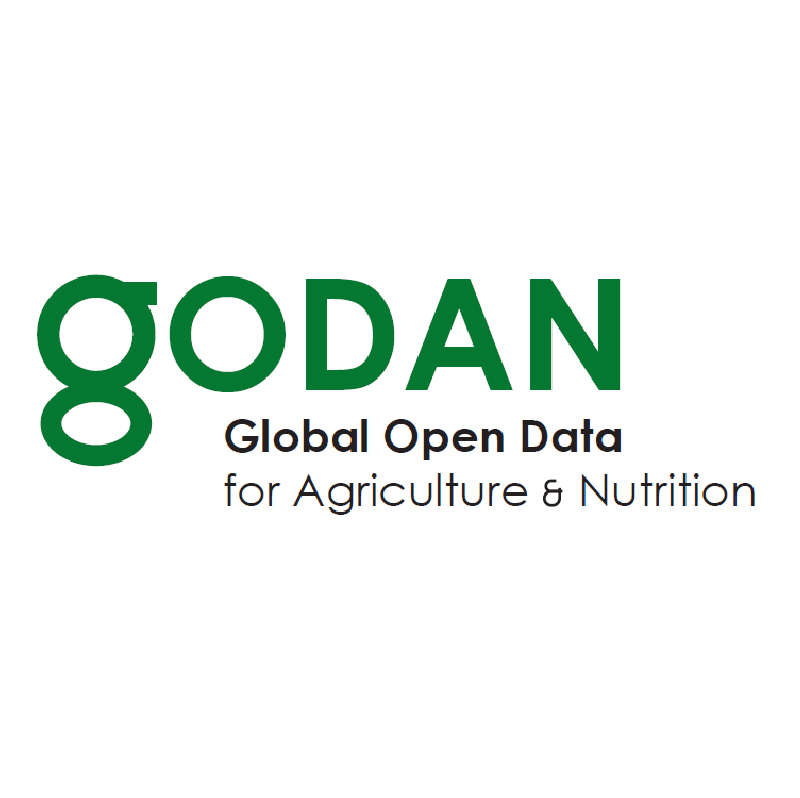

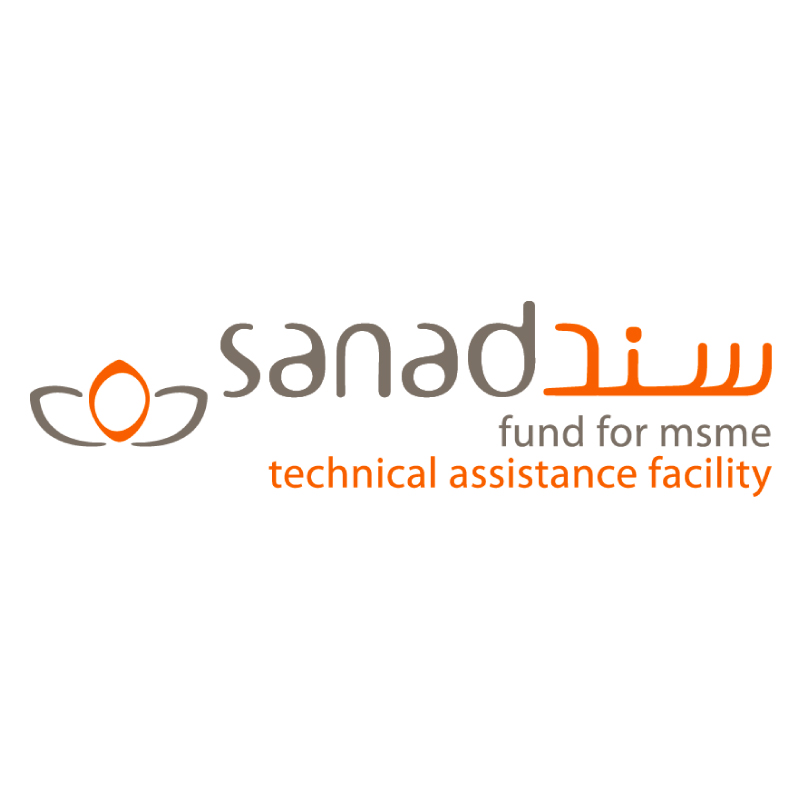

Communication Partners


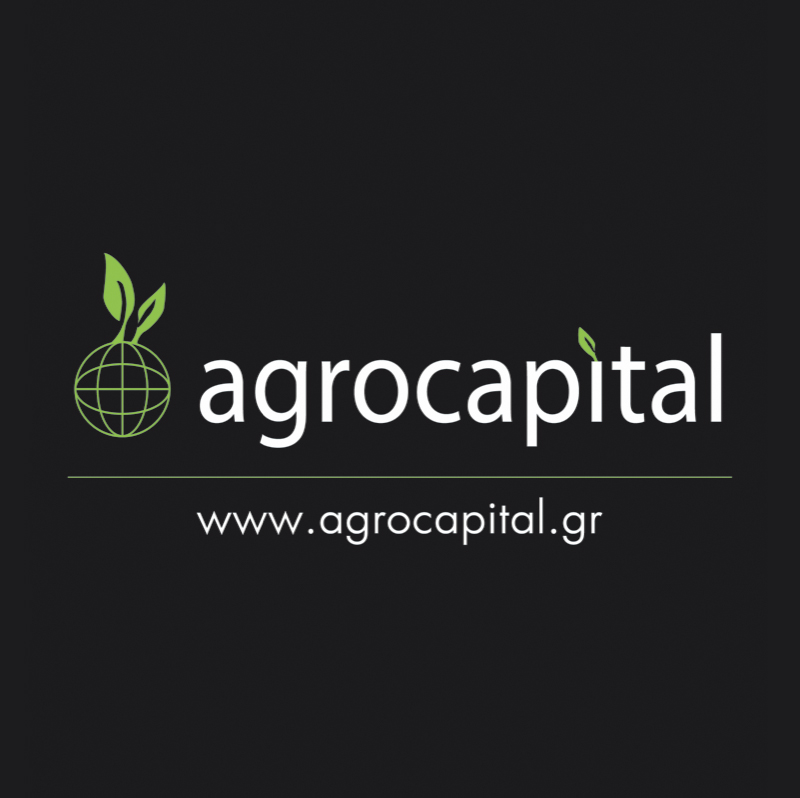
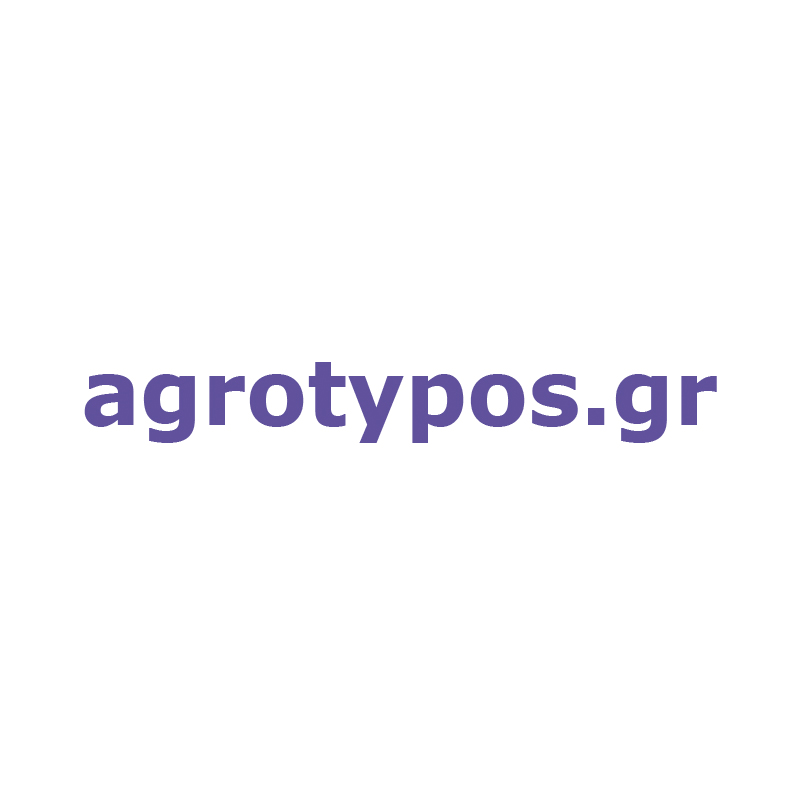






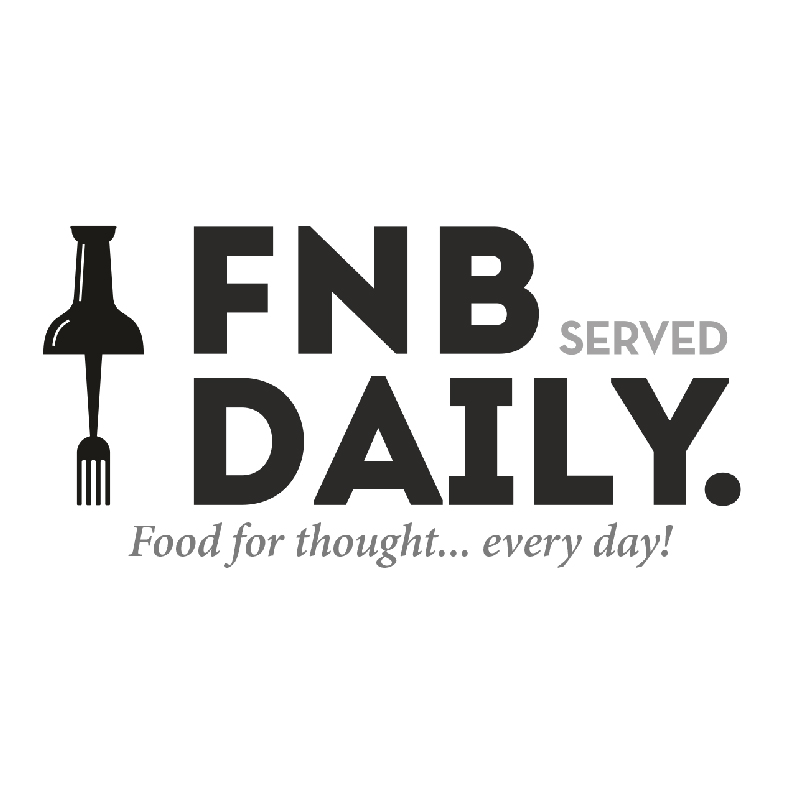

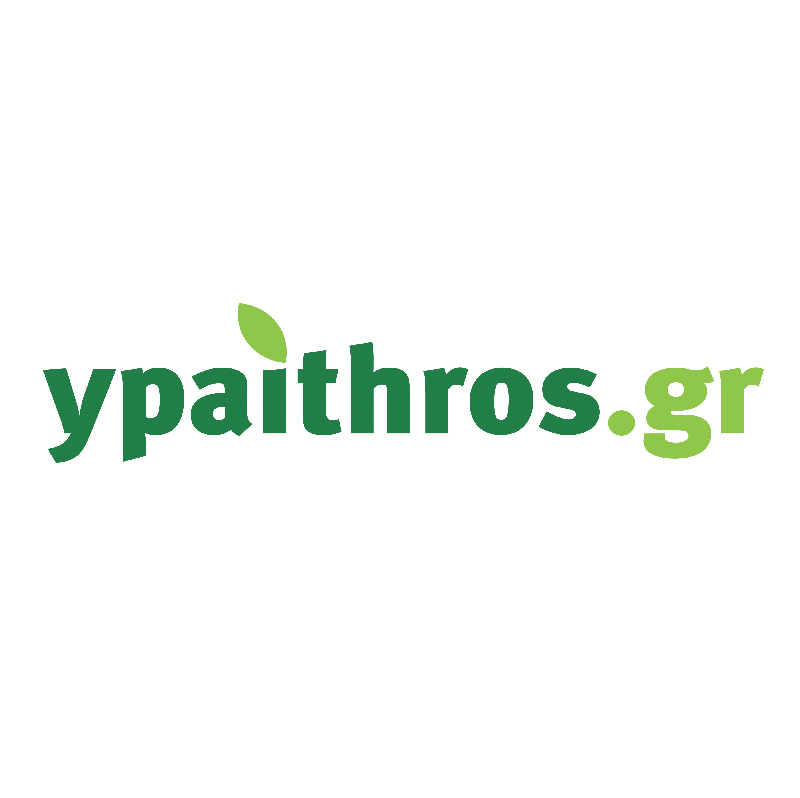
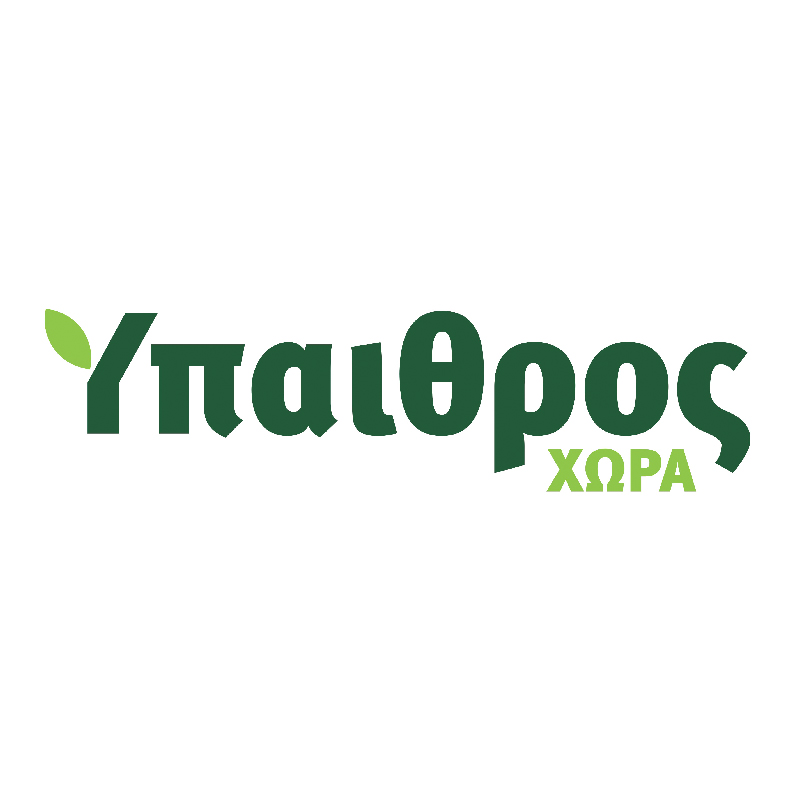

Startups Selected and Supported
Euros Awarded in Cash and Services
Euros in Investments Made to Select Finalists
Finalists Selected as Top 100 Agtech Companies in the World
Women Empowered in Agtech
Stakeholders Mobilized in Agrifood Innovation
contact
Egnatias 154, TIF, Thessaloniki 546 36
- +302103470564
- hello@facagro.com
Address: Egnatias 154, TIF, Thessaloniki 546 36



